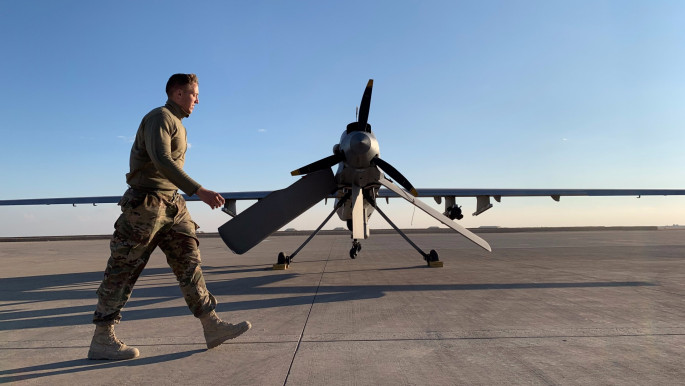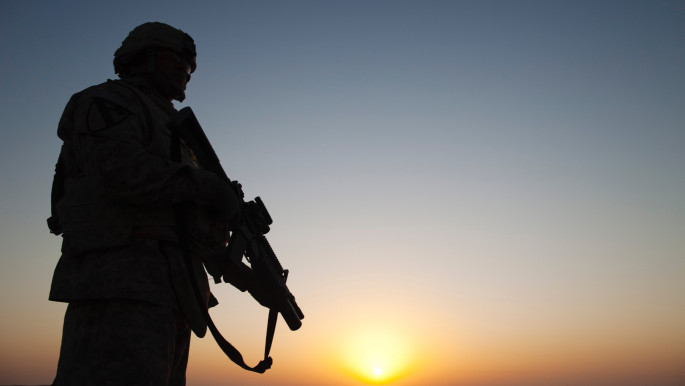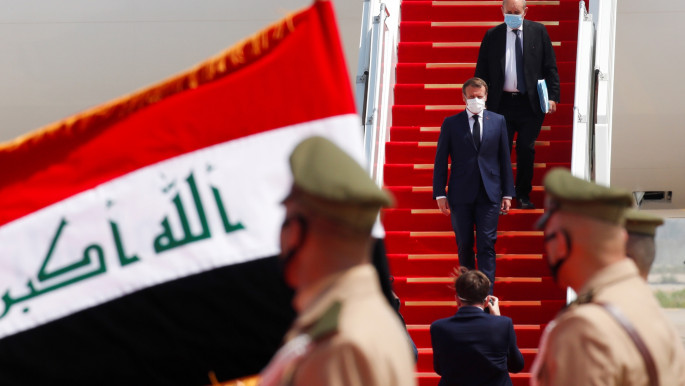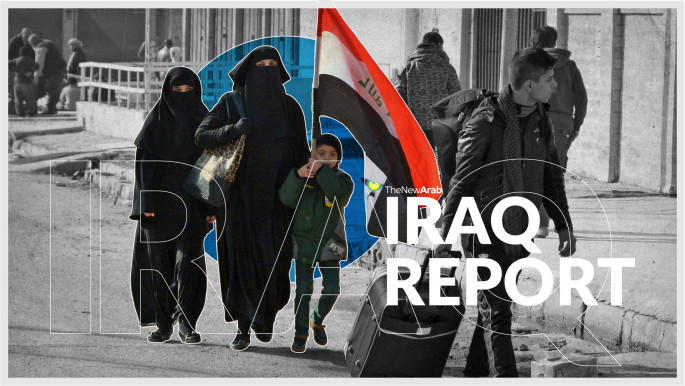The Iraq Report: Sectarian killings revive fears of strife under an 'unsustainable' system
While responsibility has not been claimed, locals familiar with the situation have all pointed the finger at one culprit – a pro-Iran Shia militia.
The Shia militias have also caused a rash of anger in the Kurdistan Regional Government (KRG) after they attacked the offices of the Kurdistan Democratic Party (KDP) in Baghdad and set it and the autonomous Kurdish region's flag ablaze.
The attack came after a senior Kurdish politician said that Iranian-backed militias should not be allowed in Baghdad's Green Zone.
With ethno-sectarian tensions rearing their head once more, many are now beginning to doubt whether Iraq under the current political system can ever rise above these disputes that have already led to civil war and even a large-scale conflict against the Islamic State group in recent years.
Villagers slain by militants
In a brutal mass slaying reminiscent of the worst of the sectarian civil strife that drenched Iraq in blood between 2006 to 2008, the bodies of eight Sunni Arab men and children were found on Saturday near the village of Farhatiya in Salahuddin governorate in north-central Iraq.
The horrific killing described by locals in Iraq as a "massacre" will be investigated by authorities, Prime Minister Mustafa al-Kadhimi vowed during a visit to Farhatiya.
 |
The spectre of internecine sectarian conflict once again looms over Iraq |  |
Early on Saturday heavily armed men raided the village and kidnapped 12 males of various ages, all believed to be relatives from the same Jubour tribe, taking them to an unknown destination.
Later that day, eight bodies showing signs of torture and gunshot wounds were found, while the fate of the remaining four males remains unknown. The victims were all male, with the oldest believed to be 59, and the youngest a child of just 14.
Kadhimi, accompanied by senior officials, participated in a mourning reception on Sunday for the victims. He said in a statement that the rights of the victims "will be upheld through the law", and that he is personally following up on the investigations that have been launched.
The perpetrators will be "punished by the courts and not by acts of revenge", he said, adding that the criminals will not escape justice.
 |
|
| Read more: The Iraq Report: US troop withdrawal raises the spectre of drone warfare |
But locals and activists have criticised Kadhimi for failing to make any headway in the killing of more high-profile individuals such as counterterrorism expert and government adviser Hisham al-Hashimi, who was murdered by suspected pro-Iran militias outside his home in Baghdad in July.
"The prime minister did not solve the murder of his friend [Hashimi], how will he solve this sectarian crime?" Salim al-Jubouri told The New Arab.
"His appearance in Salahuddin is to show that he cares, but his consideration will not solve this crime."
Relatives of the victims say they believe the Farhatiya attack was carried out by the Popular Mobilisation Forces' (PMF) 42nd Brigade, which is the formal designation for the Asa'ib Ahl Al-Haq (AAH) militiamen, in revenge for the killing of a militia member by IS militants.
"Farhatiya and a string of villages in the Ishaqi area are under control of the militias and there is no army or police there. They are controlled by two armed groups – Asa'ib Ahl Al-Haq and the Peace Brigades. Farhatiya specifically is controlled by Asa'ib," a relative of the victims told The New Arab's Arabic-language service.
"The people of the area have complained to officials in the Salahuddin governorate headquarters about Asa'ib's violations, including the tolls they enforce and the insults they direct at people, as well as their threats to kidnap women. Some families have been forced to stop their daughters going to school," he added.
 |
Without a full and formal investigation, a culture of impunity that has existed among sectarian militants since the US-led invasion in 2003 will simply continue |  |
PMF militias have been previously been accused of carrying out crimes of sectarian cleansing against local people in Salahuddin and other Sunni-majority governorates by human rights groups, including field executions, torture of prisoners to death, and looting of towns and homes.
They are widely viewed as being formally a part of the Iraqi armed forces, but falling under the chain of command of Iran's Islamic Revolutionary Guard Corps (IRGC) where they also fight in neighbouring Syria to further Tehran's strategic ambitions.
Although the PMF generally and AAH specifically have both denied involvement, their claims are hard to believe considering they control the area and many of the local clans, many of whom belong to the Jubour tribe, have been entirely disarmed.
 |
| Read more: The Iraq Report: US military drawdown will embolden Iran's proxies |
Without a full and formal investigation, a culture of impunity that has existed amongst sectarian militants since the US-led invasion in 2003 will simply continue. Many Sunnis feel that Shia militias are almost never punished for perpetrating sectarian crimes against humanity and war crimes as repeatedly demonstrated during the war with IS that ended in 2017.
Due to the weakness of the state and its institutions, and the fact that they can and will continue to perpetrate extrajudicial killings and torture, there is no deterrent to this sort of behaviour. This could cause violence to spiral once again, opening the door for IS or similar groups to pose as defenders of the Sunnis to push their own ambitions.
Tensions simmer between KRG and federal government
Aside from being implicated in the sectarian murder of Sunni villagers, the PMF have also enraged Kurdish sentiments when activists associated with them torched the Baghdad offices of a major Kurdish political party while setting the Kurdish national flag ablaze.
The Iran-linked militants stormed the headquarters of the Kurdistan Democratic Party (KDP) in Baghdad's central Green Zone on Saturday that houses many official government buildings and the diplomatic missions of foreign governments.
Once inside, they set the building on fire before tearing down the Kurdish national flag and setting it alight while chanting anti-Kurdish slogans.
 |
The assault has been viewed by Kurdish quarters as being the largest flare up in tensions since the failed independence bid in 2017 |  |
The assault has been viewed by Kurdish quarters as being the largest flare up in tensions since the failed independence bid in 2017 that was crushed by the federal authorities using military force.
The attacks on the KDP followed comments made by senior Kurdish politician and former foreign minister Hoshyar Zebari, who questioned why the PMF was allowed to deploy in the Green Zone and in Baghdad International Airport late last week.
Zebari's comments came in light of American threats to shutter their embassy in Baghdad and to quit Iraq altogether if the government continued to fail to deal with the Shia militants' continued rocket attacks on US and allied interests.
The prime minister's office immediately condemned the attack and pledged an investigation into the events.
 |
|
| Read more: The Iraq Report: France asserts itself as US withdraws |
However, there are concerns that this demonstrates how little control the federal authorities wield in their own capital, as while the Green Zone is the most heavily fortified area in all of Baghdad, it seems to be the least defendable, particularly when Iranian-backed factions are involved.
In July, Kadhimi's government attempted to arrest members of the PMF, who are also part of the powerful Tehran-backed Kataib Hezbollah group. Shia militants then proceeded to drive almost one hundred pickup trucks loaded with armed men into the Green Zone outside the premier's official residence to demand the release of their comrades, which the prime minister promptly agreed to do.
Again, this appears to demonstrate the weakness of the state as, although the PMF falls under the prime minister's command and authority, they appear to have simply bullied him into doing what they want.
Similarly, the Kurdish authorities are unlikely to feel at ease by Kadhimi's pledge to hold those responsible to account, as he has shown that he and his predecessors have been singularly incapable of preventing these armed factions from doing whatever they wanted.
Although this event is not enough in itself to trigger conflict between the Erbil-based KRG and the Baghdad-based federal authorities, it could easily be the start of new ethnic tensions which – and very similar to the sectarian tensions discussed above – could rapidly spiral out of control, plunging Iraq into yet more war.
The Iraq Report is a regular feature at The New Arab.
Click below to see the full archive:




 Follow the Middle East's top stories in English at The New Arab on Google News
Follow the Middle East's top stories in English at The New Arab on Google News


